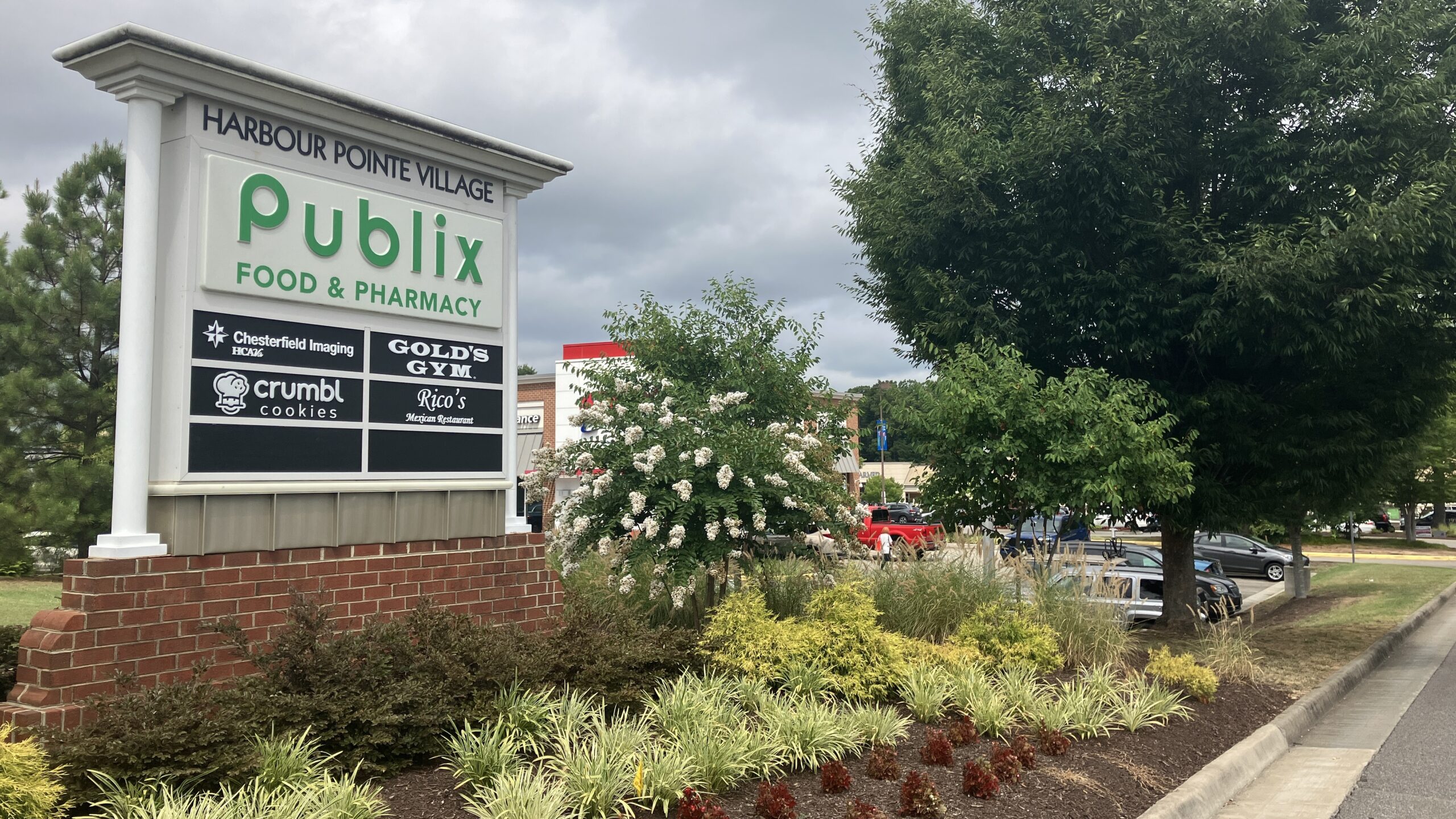Publix was already the anchor tenant at Harbour Pointe Village shopping center in Chesterfield. Now it’s also the landlord.
Last week the Florida-based grocer purchased the 128,000-square-foot retail center at 13700 Hull Street Road for $35.8 million.
The seller was Maryland-based First Washington Realty, which had bought the center in 2012 for $20.8 million.
The deal gives Publix control of its own store as well as ownership of storefronts leased to tenants including Gold’s Gym, Crumbl Cookies and Little Caesars. The shopping center is about 96 percent leased.
Publix first moved into Harbour Pointe around 2016 when it took over the space and nine other local grocery stores from Martin’s, which had previously purchased Ukrop’s.
A spokesperson for Publix said the company will occasionally acquire or develop shopping centers where it has stores.
“As a practice we don’t discuss our real estate strategy, but it is not uncommon for us to purchase sites where we are the anchor store,” the spokesperson said.
The company said it has no plans to make any changes at the center.
Publix owns the real estate of more than 35 percent of its nearly 1,400 stores in the Southeast. It has 16 stores in the Richmond area, and Harbour Pointe Village looks to be the first time it bought an entire shopping center in the region.
Local property records show that it bought its building at The Shops at Stratford Hills for $12.5 million in 2017 and that it also owns its building at 3460 Pump Road in Short Pump Crossing.
Shopping centers anchored by Publix have consistently traded hands locally. Others to sell in recent years include Charter Colony Shopping Center in Chesterfield and Colonial Square shopping center in Colonial Heights.
The Harbour Pointe Village sale closed July 2 and included a total of 14 nearly acres. Chesterfield County most recently assessed the real estate at a total of $21.5 million.
Publix was already the anchor tenant at Harbour Pointe Village shopping center in Chesterfield. Now it’s also the landlord.
Last week the Florida-based grocer purchased the 128,000-square-foot retail center at 13700 Hull Street Road for $35.8 million.
The seller was Maryland-based First Washington Realty, which had bought the center in 2012 for $20.8 million.
The deal gives Publix control of its own store as well as ownership of storefronts leased to tenants including Gold’s Gym, Crumbl Cookies and Little Caesars. The shopping center is about 96 percent leased.
Publix first moved into Harbour Pointe around 2016 when it took over the space and nine other local grocery stores from Martin’s, which had previously purchased Ukrop’s.
A spokesperson for Publix said the company will occasionally acquire or develop shopping centers where it has stores.
“As a practice we don’t discuss our real estate strategy, but it is not uncommon for us to purchase sites where we are the anchor store,” the spokesperson said.
The company said it has no plans to make any changes at the center.
Publix owns the real estate of more than 35 percent of its nearly 1,400 stores in the Southeast. It has 16 stores in the Richmond area, and Harbour Pointe Village looks to be the first time it bought an entire shopping center in the region.
Local property records show that it bought its building at The Shops at Stratford Hills for $12.5 million in 2017 and that it also owns its building at 3460 Pump Road in Short Pump Crossing.
Shopping centers anchored by Publix have consistently traded hands locally. Others to sell in recent years include Charter Colony Shopping Center in Chesterfield and Colonial Square shopping center in Colonial Heights.
The Harbour Pointe Village sale closed July 2 and included a total of 14 nearly acres. Chesterfield County most recently assessed the real estate at a total of $21.5 million.




Good move for Publix.
The takeaway is that this store is meeting or exceeding Publix’s standards for profitability, so why not own the property!
Yes, this seems to be a smart, almost no-brainer strategy for stores the size of Publix (as opposed to Walmart, which can actually change land-values just by being there and hence often buy up all the land AROUND their sites to sell/lease later).
This way they can wait to see how much business a site is making and consider buying the place (and helping their margins!) and of course even consider closing locations if they are underperforming for some reason other than the store itself.